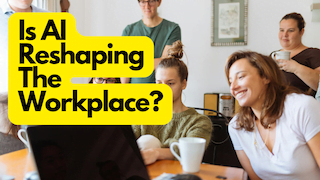When will OpenAI’s rival be available to the public? There is no timeline yet, but let’s discuss what Sora can do. The possibility of generating captions for videos was fascinating, captions that ranked well in search. With Sora AI, all that needs to be done is to provide a text prompt and start seeing the marvellous technology convert the written command into an HD film. This technology is not currently available to experience how it works, but when it comes out in the trial runs, it will be an experience never seen before.

Many of us have experienced a small percentage of what ChatGPT is capable of, and more than 94% of content creators use AI capabilities in some form or another. Now, according to the Business Insider report, the developer of ChatGPT is creating a Google-rivaling artificial intelligence search engine. Have all businesses practically integrated AI capabilities into their workflows? Not yet, but before businesses completely understand or implement these AI capabilities, the workplace will undoubtedly be disrupted.
Analyzing Sora AI capabilities, we can get an idea that it has the ability to drastically cut a business’s marketing expenditures and efforts. Envision being able to quickly and affordably create content by only typing a command such as, “Make a video of my team celebrating a business milestone on a cruise,” or “Create a video with my company vision advertised on a bus.” The results can be stunning and difficult to comprehend at this very moment, but that day may not be too far. Are technologies like these going to replace the talents such as outreach teams, social media content developers, and marketing departments that are obtained forth by this?
As per a mention on the BlackBerry blog, research from August 2023 titled “Why Are So Many Organizations Banning ChatGPT?” This is a new phenomenon and how long this will last or how it’s going to evolve, time will tell. Bans on ChatGPT and other AI applications in the workplace are being considered by 75% of organizations globally, according to the report. The reasons for the ban are the anticipation of possible harm to data security and privacy, and that is the main justification given for these bans, which are followed by worries about the reputation of the company.
AI can provide faster access to information, and employees sure get excited using the technology. Artificial Intelligence in the workplace is like doping in sports. It might definitely provide a competitive advantage, but will it also backfire? AI has undeniable power despite the concerns, and that is an established fact, and whether or not the technology is used, workers will continue to transform their jobs. Prioritizing AI governance is essential for employers to reduce risks and fully utilize its benefits to grow professionally in their careers.
It’s critical to establish explicit guidelines for the usage of AI in the workplace. The use of AI at the workplace should be fair and unbiased, and at the same time, employers need to understand and detect cybersecurity concerns and should be able to provide guidelines for appropriate AI usage. Refined discipline rules should still be in place, and workers should be made aware that work items produced by AI need to be checked for accuracy. Not everything spit out by AI is accurate and needs to be fact-checked. Providing instructions on how to use AI responsibly and effectively can also be very helpful in reaping the benefits of the technology and mitigate the potential pitfalls.
Employers need to take the initiative and embrace AI governance since AI is no longer a secret in the workplace.